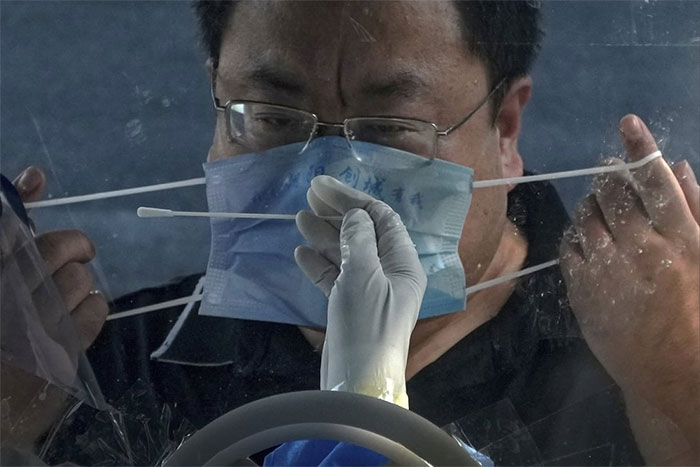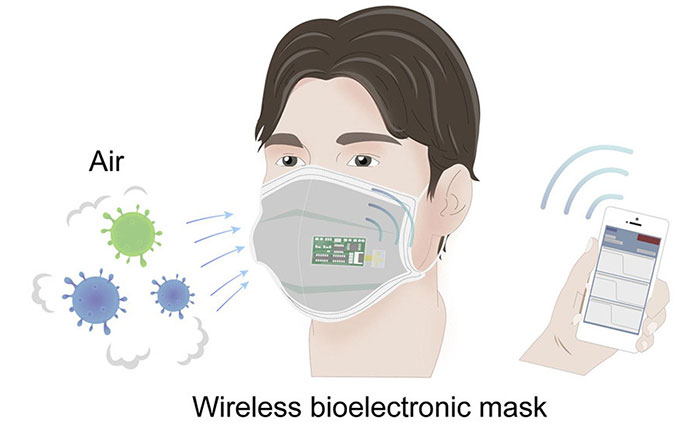A group of Chinese scientists has developed a type of electronic bio-mask that can detect respiratory diseases, including Covid-19 and influenza.
The South China Morning Post reports that the study published in the journal Matter indicates that this smart mask will provide results within 10 minutes. Specifically, when connected to a wireless network, this mask can transmit real-time data to the user’s mobile device, including alerts for virus detection.

A man removes his mask to test for the SARS-CoV-2 virus in Beijing, China. (Photo: AP).
According to the researchers, the new mask functions as an early warning system to help prevent outbreaks of respiratory infectious diseases in the future. These diseases often spread through the air via droplets or aerosols. However, directly detecting viruses in the air is challenging due to the potentially low concentrations of the virus.
To address this issue, researchers at Tongji University in Shanghai developed a wearable electronic device equipped with highly sensitive ion transistors capable of detecting low concentrations of viral proteins that cause various respiratory infectious diseases – including Covid-19, H1N1, and H5N1 strains of influenza.
To test the effectiveness of this mask, the researchers placed the device in a sealed chamber and then sprayed air containing very small amounts of Covid-19, H1N1, and H5N1 viral proteins into the space. Data showed that the device could detect viral proteins at concentrations as low as 0.3 microliters – up to 560 times lower than the concentration of virus produced in a single sneeze.
Subsequently, the researchers connected the mask to a wireless network to confirm real-time results on mobile devices, such as smartphones, using an application. According to the scientists, the mask can detect traces of pathogens in the air within 10 minutes.
“Advantages such as low detection limits, rapid response, and multi-channel analysis have made this electronic bio-mask a general detection device for various respiratory infectious diseases,” concluded the study’s author.

The electronic bio-mask connected to the user’s mobile device. (Illustrative photo: SCMP).
Mr. Fang Yin, the study’s author and a materials scientist at Tongji University, emphasized that this type of mask is also effective in poorly ventilated spaces, where the risk of infection is high.
“Previous studies have shown that wearing masks can reduce the risk of transmission and infection. Therefore, we wanted to invent a mask that can detect viruses present in the air and alert the wearer,” Mr. Fang said.
According to the researchers, if a new respiratory virus emerges in the future, this device can also be updated to detect new pathogens. The research team hopes to reduce the time required for virus detection and increase the sensitivity of the device in the future.
Previously, researchers at Harvard University and the Massachusetts Institute of Technology also developed a biosensor attached to masks to detect nucleic acids in SARS-CoV-2 virus particles from the user’s breath. According to a study published in the journal Nature Biotechnology in June 2021, this biosensor device can provide accurate results within 90 minutes.


















































